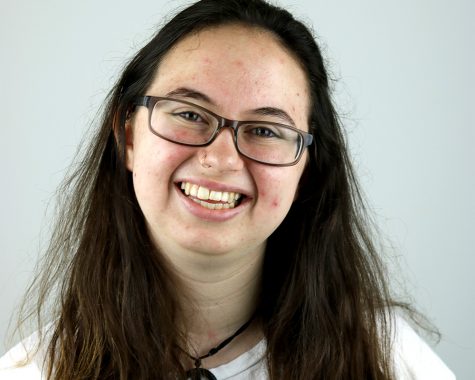Over a century and a half since Lincoln-Douglas debates
September 17, 2018
One hundred sixty years ago, the nation held its breath as a political act like never before swept through the fields of Illinois.
On July 31, 1868, Abraham Lincoln threw his hat into the race for an Illinois senate seat and challenged Stephen Douglas to a series of debates, which Douglas agreed to.
According to information found at the Lincoln Douglas Debate Museum in Charleston, these debates were significant because, in 1858, U.S. senators were elected by state legislature, not by a popular vote.
Douglas agreed to meet Lincoln once in each of the nine congressional districts, and since both candidates had already spoken at Springfield and Chicago, that left seven districts for the two senatorial candidates to debate in, which included Charleston.
The debates were three hours each, not including introductions, with equal time being given to both candidates, according to the museum.
Sept. 19, 1858, the night before the debates, Lincoln stayed in Mattoon at the Pennsylvania house, where he entertained friends and supporters while the town of Charleston grew from a population of 900 to a population of more than 12,000, with people coming in from all over to watch the two men debate.
History professor Bailey Young said the Charleston debate was so important because it was where Douglas pressed Lincoln about issues of race and slavery, those issues which were tearing the country into what would become the Civil War.
“I’m a medievalist speaking as an amateur here, I think that Lincoln was forced to confront the profound ambiguities that he felt about the question of race,” Young said. “I think that the road to the Emancipation Proclamation starts right here with the way Lincoln was forced to confront his own convictions and his own sense of the priorities.”
Lincoln is quoted as saying during this debate, “We will have no end to the slavery agitation until it takes one turn or another.”
The question of racial disparity was, and is, a hard one to solve, and that is one reason Young said this debate should be remembered and taught still today.
“Why does the debate matter today? Does race matter today? Yes. I think the connection to the events in Charleston is very clear,” Young said. “For me, the message of the Lincoln Douglas debates is a very positive one about American Democracy. Lincoln and Douglas and the people who came to hear the debate, they were out there, they were talking about (race), they were confronting it.”
Lincoln ended up losing the senate race, but both Young and the museum said the path to Lincoln’s presidency started with these seven debates across Illinois.
“Lincoln’s presidency really started with these debates, and perhaps the one in Charleston more than the others because it’s the one where the question of race was strongly posed,” Young said.
He said a lesson to be learned from the debates is the importance of having focused national discussions about hard questions.
“We see the process of dealing with tough questions here illuminated,” Young said. “It doesn’t mean that there are easy answers, automatic answers, but this is what makes history so interesting and what makes a democracy so vital and vibrant.”
He said the debates highlighted the good aspects of a democracy.
“Democracy really is a tremendous achievement, and it’s not something we can take for granted,” Young said. “In the Gettysburg address, Lincoln later said, looking at the example of the people who died there and so forth, ‘We take fresh courage from what they gave. They gave everything for this way of life, this government by the people, for the people’. These are not empty words.”
The timing of the 160-year anniversary of the Charleston debate makes them ever more important, Young said.
“This is an election year, this is a very important election year, this election in Illinois is very important, our university has just gone through a very difficult moment because of our stalemate over the budget. Here we have an opportunity to vote on that, among other things,” he said. “It’s really important this year that students vote, and I think the Lincoln Douglas debate is a good way to make that point, to remind them of that point.”
Brooke Schwartz can be reached at 581-2812 or at [email protected].



















































